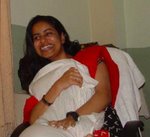On the night of March 1, 2002, a mob attacked the Best Bakery building owned by the Sheikh family in Hanuman Tekdi, Vadodara. It was one of the most notorious acts of violence committed in the aftermath of the Gujarat riots, in which 14 people were torched to death in the ovens of the bakery. The Best Bakery case and Zahira Sheikh became the symbol of the Gujarat carnage. Zahira Sheikh lodged the FIR in which she and her family members identified people from their locality in the mob. Until a month before the trial, Zahira was one of the most strident fighters for justice. But in an unexpected turn of events, she and her family retracted evidence in the Vadodara court in May 2003, creating a huge controversy. Following the new testimonial, the Vadodara Sessions court acquitted the 21 accused. This stirred social activist Teesta Setalvad, of the NGO Citizens for Justice and Peace, who brought Zahira's family to Mumbai and offered them help and protection in their quest for justice. They approached the National Commission for Human Rights, which appealed to the Supreme Court for a retrial of the case outside Gujarat. The Supreme Court ordered the retrial after Ms Sheikh said that her testimony in the first trial followed threats, but she backtracked again last month. Ms Sheikh's sister-in-law, Yasmin Sheikh, testified that Zahira changed her statement after accepting bribes.
The Best Bakery trial, which had become symbolic of the quest for justice in Gujarat, has also taken the most exasperating twists over the last couple of years, continually threatening to thwart the truth. This case is not the only one in which witnesses are asked to compromise. It tends to happen not only in most riot cases, but also in other legal matters. Our legal system is so slow and expensive that victims prefer to get on with their lives than bother with court cases. There has been no pressure from the government’s side to effect a speedy trial of the case. The system has failed these witnesses, who now fear for their lives and are thus turning hostile. The government should have provided for the security of the riot victims.
Behind the Sheikh family's constant shifts between fact and fiction, seems to be not only money but also a tussle between their quest for justice and the risk to their own lives if they spoke against those who have the upper hand. They have to keep quiet if they want to return home. And yes, money is needed to rebuild a life that has been burned to cinders.
The 2002 riots left a deep scar on the Muslim minority in Gujarat, many of whom still live in constant fear. At least 1,000 people, mainly Muslims, died in Gujarat's Hindu-Muslim riots. In every communal riot, there are hundreds of victims, who do not have the courage to stand up against the assailants. Adding to their woes is a criminal justice system that is skewed. Every commission constituted till date has recommended measures to punish the guilty and bring relief for victims, but such promises lie only on paper. While the BJP spent its tenure trying to justify the pogrom, the Congress has drawn political mileage out of exposing the BJP’s ‘communal face’.
But the Gujarat battle, like many others, may just remain a long drawn quest for justice.
The grand irony would be if, in this tangled mess of contradictions, the accused are freed, and the Sheikhs are jailed for perjury!


1 comment:
Very pretty site! Keep working. thnx!
»
Post a Comment